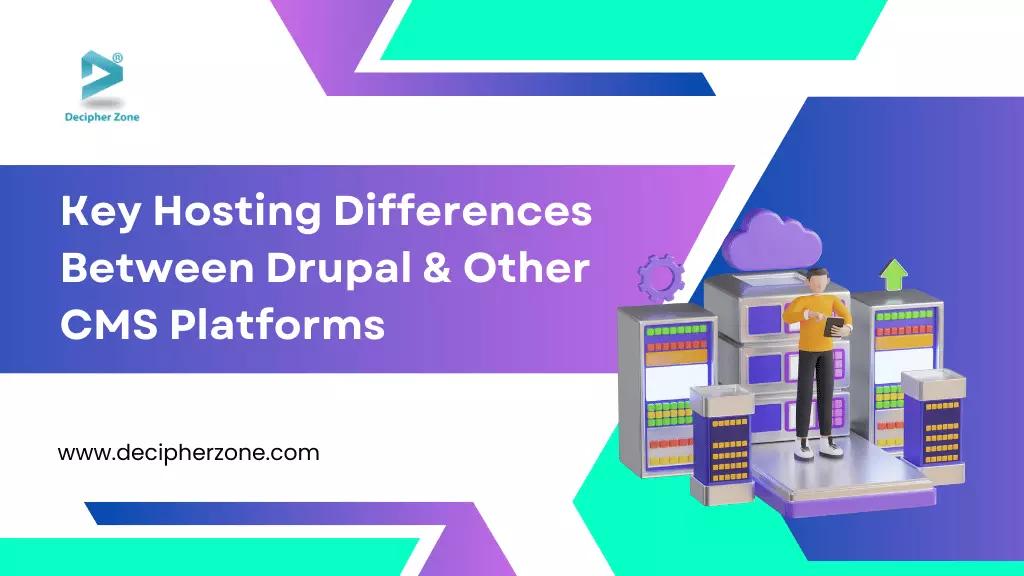When choosing a hosting environment for your website, the requirements can vary significantly depending on your content management system or CMS.
Drupal, known for its flexibility and scalability, has unique hosting needs that differ from other popular CMS platforms like WordPress, Joomla, or Shopify. Understanding these key differences is crucial for ensuring optimal performance, security, and scalability for your website.
This article explores the specific considerations for Drupal site hosting compared to other CMS options, helping you make an informed decision for your next web project.
Drupal vs. WordPress hosting costs
Hosting costs for WordPress websites vary, from highly economical shared hosting to more robust and expensive dedicated and managed hosting plans.
Complex websites tend to opt for WP Engine or another managed hosting provider, which specializes in secure, high-performance, and scalable environments.
Drupal is often more expensive to maintain, mainly due to the need for specialized skills. The software itself may be free, but Drupal typically requires expert configuration and more custom development, which can lead to increased developer service costs.
Moreover, Drupal sites tend to be more complex and large-scale and may require more robust hosting solutions, potentially increasing hosting costs.
Drupal hosting options for enterprise websites are tailored to support high-traffic environments. Drupal websites can be hosted on managed platforms, dedicated servers, or cloud services like AWS, which come with the enhanced security features and scalability necessary for large-scale operations.
These services encompass automated backups, performance optimization, and advanced caching to handle the significant loads and content typical of enterprise sites.
Hosting options for Drupal
Dedicated hosting is the most suitable option for enterprises that need full control over their server and resources, which are never shared with other sites.
Drupal-specific managed hosting solutions include security enhancements, automated maintenance updates, and scalability options for websites with a lot of resources and visitors.
Services like Microsoft Azure and Amazon Web Services allow for scalable and flexible hosting configurations that can dynamically adjust to rising data needs or traffic spikes.
These platforms are equipped with tools for automated backups, load balancing, and other functions, making them suitable for complex Drupal sites.
VPS vs. shared hosting for Drupal
VPS hosting can provide access to more tools, functionality, and control without having to be in full control of the underlying LAMP web server. Some users have switched from shared hosting to IaaS, which is a VPS option.
Maintaining a Drupal site without access to the CLI is challenging because you need access to Git, Composer, MySQL, and other essential tools. You must set up and maintain a LAMP stack and OS security, which requires relatively deep technical knowledge.
There is also the option of VPS hosting with access to the CLI and tools such as MySQL, Git, Composer, and Drush, where the website owner delegates the LAMP stack and OS setup and maintenance to the hosting provider. This service is known as PaaS.
Drupal usage statistics
The best hosting for Drupal websites is a subject worth considering. As of 2024, 200 million websites were active worldwide, of which approximately 80 million used a CMS. About 500,000 live websites use Drupal despite its relative complexity.
12.8% of the biggest 10,000 websites run on Drupal, and more than 40,000 specialized modules are available to extend Drupal site functionality.
The Drupal community has more than a million members, and users have downloaded Drupal modules over 250 million times. Drupal may be the sixth most-used CMS, but the system is represented in more than 150 countries and is the system of choice for almost 2,000 government sites.

